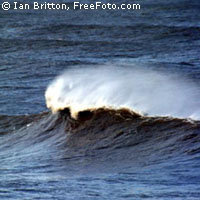European strategy needed to coordinate EU's maritime research
A European Strategy for Maritime Research will be an essential part of the new Integrated Maritime Policy for the EU, as revealed in a new proposal from the European Commission published on 10 October. Alongside maritime transport, the competitiveness of maritime businesses, employment, fisheries and the protection of the marine environment, the Commission also announced concrete actions in scientific research. The aim of these actions is to coordinate Member State approaches to marine science, research and technology. Marine and maritime research is expensive, the Commission points out. Hence, a clear strategy is required to link political and research priorities and put Europe's resources to the best possible use. According to the Commission, it is particularly important to develop interdisciplinary knowledge and foster synergies between the large number of maritime research and technology efforts that are ongoing in the EU. Further steps in this new research strategy include the following: - launching cross-cutting calls under the Seventh Framework Programme (FP7) to promote an integrated approach and improve understanding of maritime affairs; - supporting research into the effects of climate change on maritime activities and the marine environment; - supporting the creation of a European marine science partnership, furthering the dialogue between the scientific community, the industry and policy makers. In addition, the Commission sees the need for the development of a Marine Observation and Data Network, which registers and gives easy access to information about natural and human activity on the oceans. If everything goes as planned, the strategy for marine and maritime research will be presented in 2008. 'The new policy will build on Europe's strengths in maritime research technology and innovation,' the Commission states. 'It will be anchored in the Lisbon agenda for more and better jobs and growth, and in the EU's overarching commitment to ensuring that economic development does not come at the price of environmental sustainability.' 'I am convinced that a great part of our future lies in the untapped potential of the oceans,' Commission President José Manuel Barroso explains. 'Our proposal for an integrated maritime policy has been designed to generate growth, jobs and sustainability. We conceived it to promote our common European interest and to seize all opportunities that the oceans offer, while acting in a sustainable manner.' The EU as it is today has 70,000 kilometres of coastline along two oceans and four seas, including the Atlantic and Arctic Oceans, the Baltic, the North Sea, the Mediterranean and the Black Sea. The maritime regions account for about 40% of the EU's GDP and population, making the sea an important factor in the well-being of Europe, the Commission says.



